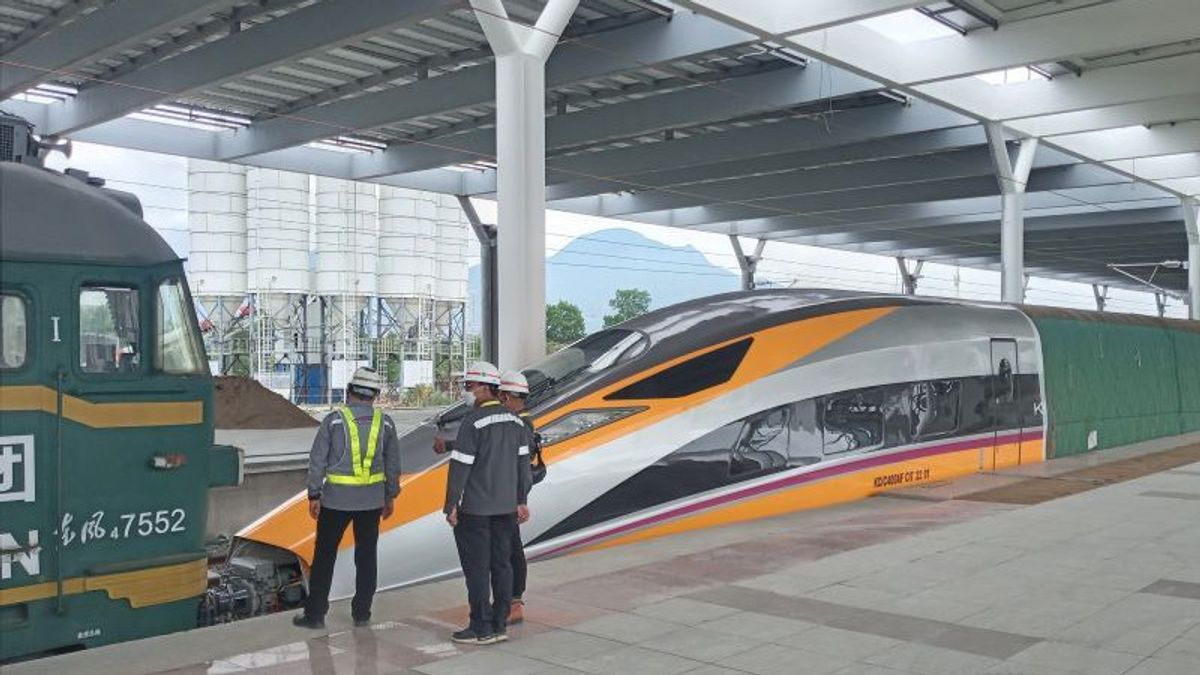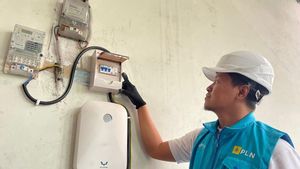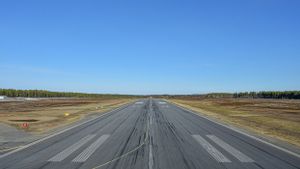JAKARTA - The Jakarta-Bandung High Speed Rail Project (KCJB) conducted by PT Kereta Cepat Indonesia China (KCIC) puts the government in a difficult position.
The reason is, if it is not continued, the government will suffer enormous losses.
On the other hand, if it is continued, the government will have to spend more.
Economist and Director of the Center of Economic and Law Studies (Celios) Bhima Yudhistira said the KCJB project was like a simalakama fruit.
When the government decided to continue the project, the government had to be burdened by the swelling of contracting costs.
"So the Rapid Average project is a simalakama project. If it continues with cost overruns, the cost will swell, especially from the difference in exchange rates because some of the raw materials for the construction are imported," he told VOI, Sunday, October 16.
Not only that, said Bhima, the government must also bear the swelling of the problem that the interest costs of the loan are getting bigger.
If the cost of the construction increases, the interest will be even greater.
"This will be a burden for SOEs and the state. So the State Budget must continue to make injections and even if the project is completed operationally, the state will continue to conduct massive subsidizations," he explained.
Meanwhile, continued Bhima, if the KCJB project was stopped, it would be a stalled project. The budget that has been disbursed by the government will be scorched.
"Meanwhile, if the project is stopped, it will become a stalled project which will be a problem not only from an economic perspective but also a problem from the law," he said.
Middle Road
Therefore, said Bhima, the government must take a middle ground to overcome the swelling costs of the KCJB project.
The middle way in question is that the government must encourage sharing the pain or various burdens with China.
"The government needs to encourage the occurrence of sharing the pain or various burdens with creditors. In this case, the China Development Bank, so that creditors also bear the cost overrun," said Bhima.
Then, according to Bhima, the government must also renegotiate or renegotiate regarding principal installments and loan loans with KCJB project creditors.
"The second is to renegotiate the payment of principal installments and loan interest to creditors who finance the Jakarta-Bandung high-speed train. So with this renegotiation, at least the cost of principal installments and loan interest can be reduced or temporarily suspended," he said.
Bhima said this needs to be considered by the government. Moreover, seeing the world's economic situation is in danger of a recession.
According to him, even if this project operates next year, the passengers will be corrected along with the weakening purchasing power of the community.
"Even if the train operates quickly, the number of passengers may be affected by the pressure on people's purchasing power. This will result in the operational cost burden when the train operates compared to the income received by the operator is not comparable or the gap is too wide," he said.
Taget Operating 2023
President Joko Widodo (Jokowi) hopes that the Jakarta-Bandung High Speed Rail (KCJB) project can be part of connectivity between countries as initiated by ASEAN countries.
Jokowi revealed that the realization of the construction of the high-speed rail project until Wednesday, October 12, had reached 88.8 percent of the target.
He said the KCJB could operate in June 2023.
With the construction of the KCJB project, Jokowi hopes that the mobility of people and goods will increase and be fast. It will also increase the competitiveness of the economy.
In addition, Jokowi hopes that the effects of economic multipliers will arise from the KCJB project.
"Then there are new economic growth points in Jakarta, in Bandung there are, then in Bandung Regency it also happens," said Jokowi Jokowi after reviewing the construction of a high-speed train project at Tegalluar Station, Bandung Regency, West Java.
Jokowi also revealed that there had indeed been problems related to the condition of the soil contours during the construction of tunneles (tunnels) 2 and 11. However, this obstacle has now been resolved.
"The land is very difficult to control, but Alhamdulillah it's finished now," he said.
The English, Chinese, Japanese, Arabic, and French versions are automatically generated by the AI. So there may still be inaccuracies in translating, please always see Indonesian as our main language. (system supported by DigitalSiber.id)













